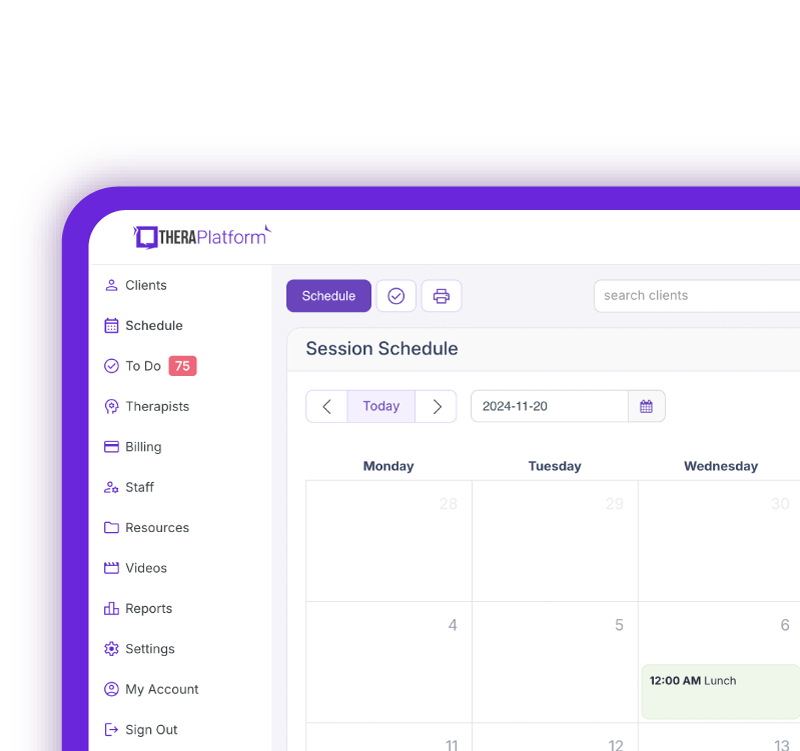Dyslexia ICD 10

Dyslexia ICD 10 code F81.0 is used by speech-language pathologists to indicate a specific learning disorder that causes difficulties in an individual’s reading, writing, and spelling abilities, and affects an estimated 20% of the population. Because of the strong link between Dyslexia and speech and language disorders (including developmental language disorder and speech sound disorder), speech therapists have a key role in the treatment of Dyslexia.
Summary
- Dyslexia ICD-10 Code F81.0 identifies a specific reading disorder and is commonly used by SLPs to support accurate diagnosis, documentation, and insurance billing for clients with reading, spelling, and decoding difficulties. Enrolling in an insurance billing course for therapists can help providers enhance their knowledge.
- Speech-language pathologists play a key role in evaluating and treating Dyslexia, particularly due to its strong overlap with other speech and language disorders. Therapy may include phonological awareness training, fluency exercises, and multisensory reading interventions.
- Accurate documentation using the F81.0 code is essential for compliance with HIPAA and reimbursement from insurers. SLPs should complete comprehensive evaluations and regularly monitor progress to guide treatment and support billing needs.
- Using EHR systems with integrated billing tools—such as TheraPlatform—can significantly streamline tasks like automated invoicing, claim creation, and payment tracking, reducing administrative burden and insurance claim errors for therapists.
→ Click here to enroll in our free on-demand Insurance Billing for Therapists video course [Enroll Now]
According to ASHA, SLPs are encouraged to play an important and collaborative role in literacy development. This is because SLPs possess knowledge about communication processes and disorders, as well as language acquisition. Educating parents and professionals, and addressing the semantic, syntactic, morphological, and phonological aspects of literacy disorders falls under speech therapists’ scope of practice.
According to the International Classification of Diseases, 10th Edition, the Developmental Dyslexia ICD 10 code is F81.0. Using the accurate Dyslexia ICD 10 code provides important information about the child’s diagnosis, allowing Speech Therapists to appropriately address reading difficulties in therapy.
Streamline your insurance billing with One EHR
- Claim batching
- Auto claims
- Automated EOB & ERA
- Real-time claim validation
- Real-time claim tracking
- Aging and other reports

When working with a child with this condition, attaching the accurate Dyslexia ICD 10 code to therapy notes and billing documentation helps ensure compliance with HIPAA regulations and reimbursement from payers.
Follow along here for details on the assessment and treatment of Dyslexia. We’ll guide you through how children with Dyslexia can benefit from speech therapy, considerations for therapists, and more.
Definition and classification of Dyslexia
Dyslexia is a neurodevelopmental disorder that involves difficulty reading words, and occurs as a result of differences in how the brain processes language.
Dyslexia is characterized by decoding difficulties, in which the individual has trouble translating a written word to a spoken word. Phonological processing difficulties can impact a child’s ability to decode a written word.
Dyslexia is associated with difficulties with accurate and fluent word recognition and poor spelling. The Dyslexia ICD 10 classifies the condition as a specific learning disorder.
What is Dyslexia ICD 10 code?
The Dyslexia ICD 10 code is F81.0; Specific reading disorder, with impairment in reading.
This includes an impairment in:
- Word reading accuracy
- Reading rate or fluency
- Reading comprehension
Using the appropriate code Dyslexia ICD 10 code of F81.0 provides helpful information about the diagnosis. This allows speech therapists to identify and treat specific areas of difficulty associated with Dyslexia when working with the client.
Watch this video to learn common insurance billing struggles and solutions
→ Start My Free Trial
→ Start My Free Trial
Speech therapy assessment for Dyslexia
A comprehensive evaluation of an individual’s language and reading skills should be completed in a speech therapy assessment for Dyslexia.
The goal of the evaluation is to identify the underlying difficulties in language and phonological processing that are contributing to a client’s reading impairments.
A battery of standardized tests may be completed within the evaluation, such as the following assessments:
- Comprehensive Assessment of Spoken Language (CASL)
- Clinical Evaluation of Language Fundamentals - 5 (CELF-5)
- Comprehensive Test of Phonological Processing - 2 (CTOPP-2)
- Gray Oral Reading Test - 5th Edition (GORT-5)
- Oral-Written Language Scale - 2nd Edition (OWLS - 2)
A speech therapy evaluation of Dyslexia may also include a thorough case history review with the parent/caregiver, clinical observation, and interdisciplinary collaboration. Speech therapists can gain valuable information from other professionals working with the client, such as a reading specialist, psychologist, and teacher.
Treatment planning and intervention
After completing a thorough assessment, the SLP can develop an individualized treatment plan based on the specific needs of a client with Dyslexia.
Intervention through speech therapy may include:
- Multisensory reading programs. Structured approaches such as Orton-Gillingham teach reading through hands-on activities that engage the senses and focus on phonics.
- Phonological awareness training. The ability to recognize and manipulate sounds is key for learning to read. Activities such as rhyming words and blending sounds can help improve an individual’s phonological awareness skills.
- Reading fluency practice. Repeated reading, guided reading, and working on strategies for decoding unfamiliar words can improve a client’s reading fluency.
SLPs may also target areas of literacy such as reading comprehension by teaching specific strategies and introducing tools like graphic organizers.
Practice Management + EHR + Telehealth
Mange more in less time in your practice with TheraPlatform

Progress monitoring and documentation
Monitoring a client’s progress over time is an important aspect of speech therapy for Dyslexia. A combination of formal and informal assessment measures can be used to track a client’s progress.
Re-administration of standardized scores over time allows the SLP to compare a client’s performance and provides insight into the effectiveness of intervention. Therapists can adjust an individual’s treatment plan as needed to ensure therapy goals and interventions are appropriate and relevant to the client’s needs.
It’s essential to complete documentation of treatment progress to communicate with parents and other professionals, as well as for insurance and reimbursement purposes. Including the Dyslexia ICD 10 code when appropriate can ensure accurate documentation of a client’s areas of difficulty.
Assistive technology and accommodations
Assistive technology and accommodations can support individuals with Dyslexia so they can thrive in academic settings and within their daily lives.
Clients with Dyslexia may benefit from using reading tools such as a text to speech pen scanner. If note taking is difficult for the individual with Dyslexia, he or she can use an audio recorder device such as the AudioNote or create an audio recording on a tablet and use a note-taking app.
Accommodations can be used in settings like schools to help an individual with Dyslexia succeed. This might include extended time to complete assignments and tests, which can reduce the pressure of reading and writing quickly. Other accommodations may include allowing the individual to use alternate assessment methods, such as oral presentations, or using tools such as reading guides and color overlays.
Challenges in Dyslexia treatment
Although speech therapy plays a critical role in the treatment of Dyslexia, there are certain challenges to consider.
First, SLPs will need to create a unique treatment plan for the client as each individual with Dyslexia may exhibit unique areas of difficulty and learning styles.
Progress in speech therapy may also occur slowly for an individual with Dyslexia, requiring a long-term commitment and consistent follow through from the client, family, and other professionals.
Despite these challenges, speech therapy remains an essential component of a comprehensive approach to Dyslexia treatment.
Dyslexia is a common learning disorder that affects a client’s ability to function in academic settings and throughout their daily life. There is a high comorbidity of Dyslexia and speech and language disorders, and SLPs play a critical role in treating individuals with Dyslexia.
By using the correct Dyslexia ICD 10 code in documentation and billing, the SLP can ensure reimbursement for services when completing assessments and therapy for individuals with Dyslexia.
Practice Management + EHR + Telehealth
Mange more in less time in your practice with TheraPlatform

How EHR and practice management software can save speech therapists time on insurance billing
EHR with integrated billing software and a clearing house, such as TheraPlatform, offers speech therapists significant advantages in creating an efficient insurance billing process. The key is minimizing the amount of time dedicated to developing, sending, and tracking medical claims through features such as automation and batching.
What are automation and batching?
- Automation refers to setting up software to perform tasks with limited human interaction.
- Batching or performing administrative tasks in blocks of time at once allows you to perform a task from a single entry point with less clicking.
Which billing and medical claim tasks can be automated and batched through billing software?
- Invoices: Create multiple invoices for multiple clients with a click or two of a button or set up auto-invoice creation, and the software will automatically create invoices for you at the preferred time. You can even have the system automatically send invoices to your clients.
- Credit card processing: Charge multiple clients with a click of a button or set up auto credit card billing, and the billing software will automatically charge the card (easier than swiping!)
- Email payment reminders: Never manually send another reminder email for payment again, or skip this altogether by enabling auto credit card charges.
- Automated claim creation and submission: Batch multiple claims with one button click or turn auto claim creation and submission on.
- Live claim validation: The system reviews each claim to catch any human errors before submission, saving you time and reducing rejected claims.
- Automated payment posting: Streamline posting procedures for paid medical claims with ERA. When insurance offers ERA, all their payments will post automatically on TheraPlatform's EHR.
- Tracking: Track payment and profits, including aging invoices, overdue invoices, transactions, billed services, service providers.
Utilizing billing software integrated with an EHR and practice management software can make storing and sharing billing and insurance easy and save SLPs time when it comes to insurance billing for therapists.
Streamline your practice with One EHR
- Scheduling
- Flexible notes
- Template library
- Billing & payments
- Insurance claims
- Client portal
- Telehealth
- E-fax

Resources
TheraPlatform is an all-in-one EHR, practice management, and teletherapy software built for therapists to help them save time on admin tasks. It offers a 30-day risk-free trial with no credit card required and supports different industries and sizes of practices, including speech-language pathologists in group and solo practices.
More resources
- Therapy resources and worksheets
- Therapy private practice courses
- Ultimate teletherapy ebook
- The Ultimate Insurance Billing Guide for Therapists
- The Ultimate Guide to Starting a Private Therapy Practice
- Insurance billing 101
- Practice management tools
Free video classes
- Free on-demand insurance billing for therapist course
- Free mini video lessons to enhance your private practice
- 9 Admin tasks to automate in your private practice
References
Colby Hall, Katlynn Dahl-Leonard & Grace Cannon (2022) Observing Two Reading Intervention Programs for Students with Dyslexia, Exceptionality, 30:2, 109-125, DOI: 10.1080/09362835.2021.1938067
Snowling, M.J. and Hulme, C. (2021), Annual Research Review: Reading disorders revisited – the critical importance of oral language. J. Child Psychol. Psychiatr., 62: 635-653. DOI: https://doi.org/10.1111/jcpp.13324



